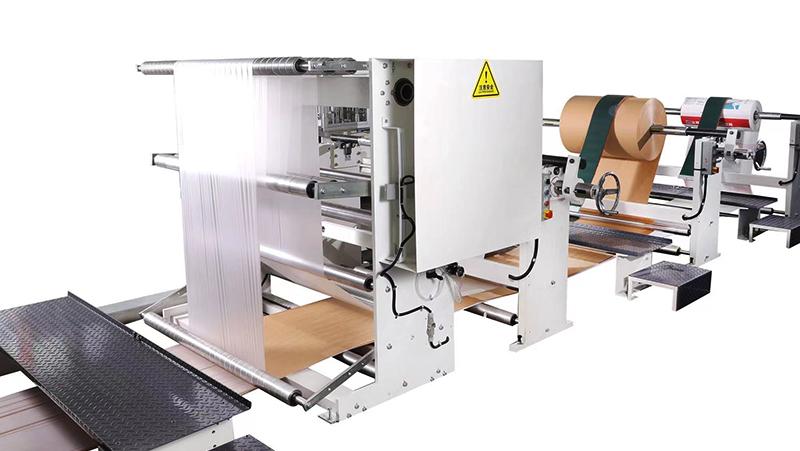The Ultimate Guide to Paper Bag Sealing Machines: Benefits, Types, and Applications
Release time:2025-04-30 Classification:Knowledge
Paper bag sealing machines are essential tools in packaging operations, designed to securely close paper bags for efficient storage, transportation, and retail display. These machines ensure product integrity, reduce manual labor, and enhance production speed. This article explores the functionality, advantages, and diverse applications of paper bag sealing machines, providing insights for businesses seeking reliable packaging solutions.

How Paper Bag Sealing Machines Work
Paper bag sealing machines automate the process of closing bags using advanced mechanisms tailored to different materials and bag designs. Common sealing methods include:
- Thermal Sealing: Applies heat to melt and bond thermoplastic layers on paper bags (e.g., laminated or coated bags).
- Adhesive Sealing: Uses glue or tape to seal seams, ideal for uncoated paper bags requiring eco-friendly solutions.
- Stitching: Employs metal staples or thread for heavy-duty bags requiring extra durability.
These machines often feature adjustable settings for bag size, sealing temperature, and speed, ensuring compatibility with various production requirements.
Key Benefits of Using Paper Bag Sealing Machines
- Enhanced Efficiency: Automates repetitive tasks, sealing hundreds of bags per hour with minimal operator intervention.
- Consistent Quality: Delivers uniform seals, reducing product damage or spillage during handling.
- Cost Savings: Lowers labor costs and material waste by optimizing sealing precision.
- Sustainability: Supports eco-friendly packaging by enabling secure seals on recyclable or biodegradable paper bags.
Types of Paper Bag Sealing Machines
- Automatic Sealers: Integrated into production lines for high-volume operations, offering seamless synchronization with filling and labeling systems.
- Semi-Automatic Sealers: Ideal for small to medium businesses, requiring manual bag placement before automated sealing.
- Portable Sealers: Compact, lightweight units for on-site or small-scale use, such as farmers’ markets or boutique stores.
Industries Served
Paper bag sealing machines are versatile and widely used across sectors, including:
- Food and Beverage: Sealing flour, grains, coffee, or snacks in hygienic, tamper-evident packaging.
- Retail: Creating branded, secure closures for shopping bags.
- Pharmaceuticals: Ensuring sterile seals for medical supplies or herbal products.
- Agriculture: Packaging seeds, fertilizers, or animal feed.
- Manufacturing: Securing industrial components or raw materials.
Choosing the Right Machine
Consider these factors when selecting a paper bag sealing machine:
- Production Volume: Match throughput capacity (e.g., bags per minute) to your operational needs.
- Bag Specifications: Ensure compatibility with bag sizes, materials (e.g., laminated, kraft), and sealing types.
- Automation Level: Prioritize fully automatic models for large facilities or semi-automatic units for flexibility.
- Durability: Opt for robust construction with stainless steel components for long-term use.
- Safety Features: Look for overheat protection, emergency stops, and user-friendly interfaces.
Paper bag sealing machines are indispensable for modern packaging workflows, combining speed, reliability, and sustainability. By understanding their mechanisms, benefits, and applications, businesses can invest in equipment that streamlines operations and meets evolving consumer and regulatory demands. Whether for food, retail, or industrial use, these machines offer a scalable solution to enhance packaging quality and efficiency.






